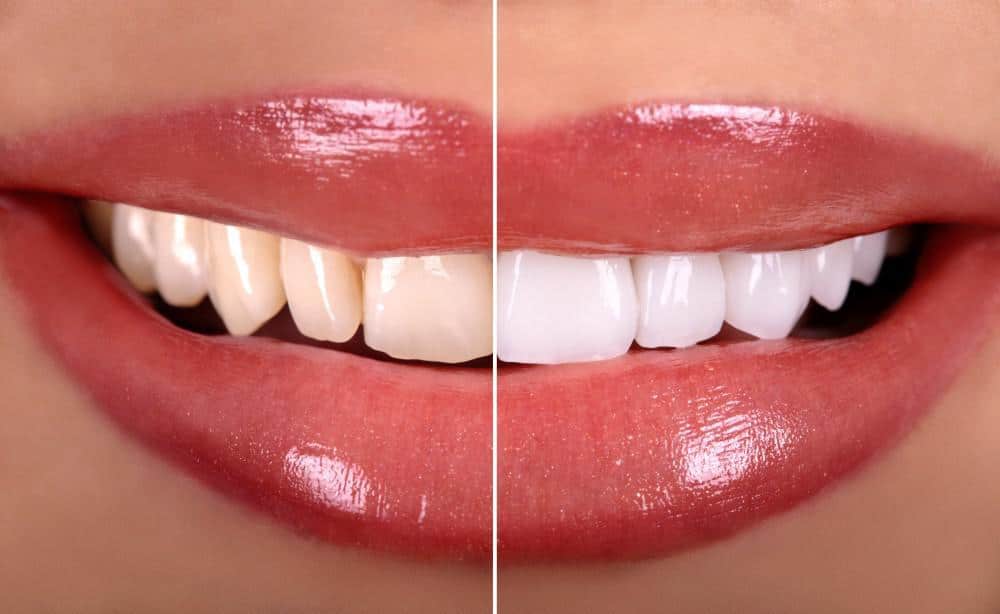Teeth whitening is a popular cosmetic dental treatment for women and men of all ages — and why not? Professional teeth whitening lifts away years of stains and dinginess, so your smile looks beautiful and healthy.
The only downside: some patients experience temporary tooth sensitivity after their whitening treatments, a side effect that resolves soon on its own, but can still be uncomfortable. Fortunately, there are steps you can take to alleviate sensitivity, so you can enjoy all the benefits of whitening without worrying about minor discomfort.
At The Glen Dental, our team offers the most advanced teeth whitening solutions to help every patient in San Jose, California, get the results they desire. Here are eight tips that can help minimize sensitivity after your whitening treatment.
Teeth whitening and increased sensitivity
Teeth whitening uses special solutions to gently penetrate the tooth surface so stains can be lifted away. Those solutions are completely safe, so you can feel confident they won’t harm your teeth. But they can cause temporary irritation.
After whitening, there are a couple of main causes of sensitivity. Sometimes, the solution used to whiten teeth irritates tender gum tissue at the base of your teeth. Our team takes extra steps to protect your gums so contact is avoided.
Whitening solutions can also irritate the nerves inside your teeth. Once applied, the whitening solutions penetrate the outer enamel layer and enter tiny, microscopic channels called tubules that travel to the tooth nerve in the center part of your tooth.
These channels help your tooth feel hot and cold temperatures, and they can also get irritated, sending discomfort “signals” to your tooth. The good news: heightened sensitivity is not caused by or related to any type of tooth damage from the whitening agents, and it resolves once those tiny channels “calm down” again.
Preventing tooth sensitivity after whitening
Even though post-whitening tooth sensitivity is minor and resolves on its own over time, it’s still no fun to wait it out. These tips can help relieve sensitivity, and some may even help prevent it in the first place.
1. Use the right toothpaste
One of the best ways to deal with tooth sensitivity is to stop it before it happens. Using a toothpaste made for sensitive teeth for a few weeks prior to your whitening treatment can help. These toothpastes work to seal sensitive areas and prevent those tiny tubules from getting irritated.
Continue to use the toothpaste for several days after whitening. If your teeth are naturally sensitive to hot and cold temperatures, you might consider switching to this type of toothpaste on a regular basis.
2. Take an over-the-counter pain reliever
Taking pain relievers after whitening can help with minor sensitivity, but you can also take these medicines before your appointment so your system is “primed” to squelch pain signals.
3. Avoid high-acid foods and drinks
Orange and grapefruit juice, soda, and even wine contain high amounts of acids that can soften tooth enamel. While the effect is temporary, it can wind up making your teeth more sensitive, especially to changes in temperature.
4. Limit foods and drinks that are very hot or very cold
You probably already do this to some extent if your teeth are naturally sensitive. If not, then limiting tooth contact with extreme temperatures after whitening is a good way to reduce the risk of triggering or exacerbating sensitivity.
5. Use a straw
Drinking through a straw limits tooth exposure to liquids, which is especially important for liquids that are cool or warm or for citrus drinks that contain high amounts of acid. (Using a straw regularly helps keep staining pigments off the tooth surface, too.)
6. Be gentle when you brush
If you don’t already, switch to a soft-bristled brush for a week or so after your whitening treatment, and use lukewarm water (not cold) to rinse.
7. Skip over-the-counter whiteners
Over-the-counter products don’t work as well as professional products, and they also don’t protect against sensitivity as well, either. Plus, if you use them on a regular basis, you could be keeping your teeth in a “heightened state” of sensitivity.
8. Report prolonged sensitivity
Sensitivity associated with teeth whitening typically resolves in a few days to a week or so. If you continue to have tooth sensitivity, there’s a really good chance it’s being caused by something else, like a tooth crack or a cavity. Call the office so we can check it out and prevent an underlying problem from getting worse.
Enjoy your most beautiful smile
Not everyone has sensitivity after teeth whitening, and even when it does happen, it’s only temporary. These tips can help you enjoy your whitening results without worrying about a little minor discomfort.
To schedule your professional whitening treatment, call 669-205-1303 or book an appointment online with the team at The Glen Dental today.


